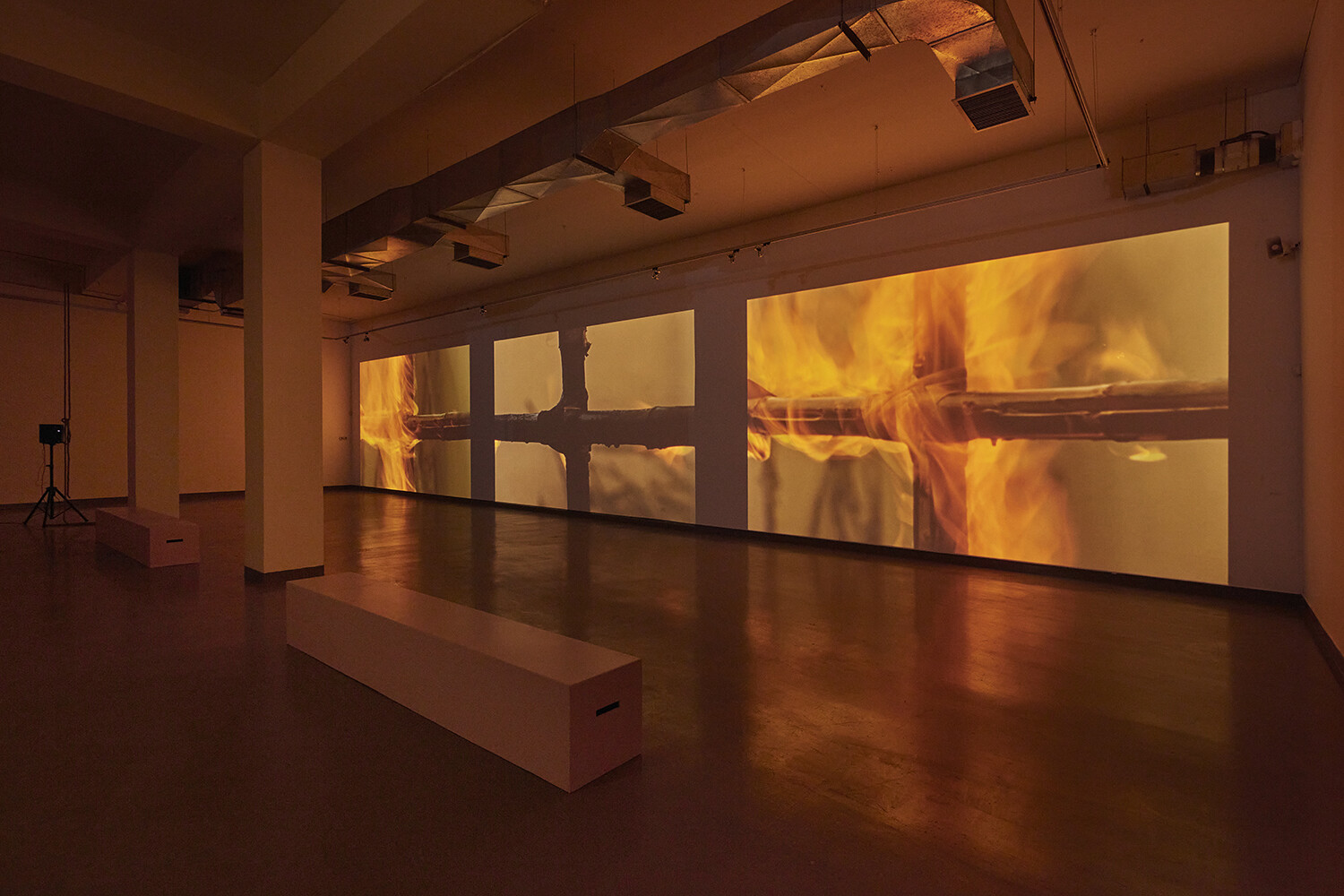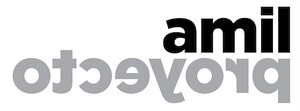The Continuous Thread Twists and Turns on Itself
15th Gwangju Biennale Pavilion
September 7–December 1, 2024
For the 2024 Gwangju Biennale, proyectoamil presents “The Continuous Thread Twists and Turns on Itself,” an exhibition featuring the video works of Elena Tejada-Herrera and Armando Andrade Tudela. This theme serves as a metaphor for the complex and evolving nature of identity.
At the heart of the exhibition is a reflection by Armando Andrade Tudela on his video work, Huaco Deforme. This single-channel video depicts an ancient deformed ceramic from the Chancay culture, rotating on its axis. This observation has inspired a deeper exploration of how the showcased artworks interconnect.
The concept of “The Continuous Thread Twists and Turns on Itself” symbolizes identity’s fluidity and complexity. While “the continuous thread” represents identity as a seemingly unified entity, the notion that it “twists and turns on itself” suggests that identity is dynamic, cyclical, and never static. This idea has evolved from a simple observation into a profound reflection on the ever-changing nature of selfhood.
Armando Andrade Tudela’s featured works offer a captivating exploration of visual storytelling and historical discourse: The triptych Un pentágono tallado en piedra presents a visual montage of the artist’s films produced since 2008, interweaving visual signs to generate new chains of content. Huaco deforme challenges perceptions of collective heritage by exploring deformity and singularity. La verdad ha cambiado delves into the complex relationships between pedagogy, indoctrination, and violence in Peru’s recent history, employing a dynamic interplay of images and performances.
Elena Tejada-Herrera’s work provides a thought-provoking commentary on socio-political issues: Las Bambas poignantly addresses the impact of extractive activities on communities, particularly women, through a multimedia display of fabric-clad figures amidst changing landscapes. Bomba and the Bataclana in the Belly Dance challenges patriarchal gender constructions through street performance, celebrating popular cultural expressions. Furthermore, Man and Souvenirs explores traditional subject matters through a contemporary lens, incorporating electronic means and humor to deconstruct societal norms.
The exhibition, viewed through a flexible lens, unfolds a kaleidoscopic narrative filled with distortion and psychedelia. It encourages viewers to rethink identity as a concept in constant flux, continually revisited and redefined. Just as a thread creates intricate patterns and knots, identity is shaped by numerous factors that intertwine and interact in complex ways.
Central to the exhibition is the portrayal of identity as a malleable construct, interlaced with themes of generational shift through the works of Elena Tejada-Herrera and Armando Andrade Tudela. Their video works and installations serve as visceral responses to the urban backdrop, grappling with the specter of violence and repression while asserting a distinct Peruvian identity within a global tapestry. Explorations into systemic repression, racial dynamics, gender constructs, post-colonial legacies, and homophobia emerge as prominent motifs, showcasing a keen contemporary consciousness of societal strife.
Despite differences in age and gender among the artists, a unifying thread binds their distinct narratives, rendering the exhibition space a nexus of inclusivity where manifold perspectives converge. The exhibition resonates with a cacophony of voices and narratives, offering a nuanced portrayal of contemporary Peruvian identity with repercussions far beyond its geographical confines.
By acknowledging identity’s continuous and cyclical nature, we can embrace the subtle distinctions and contradictions inherent in our sense of self. It invites us to explore the diversity and interconnectedness of human experience, recognizing that identity is a journey marked by exploration, discovery, and transformation.
The Lyon-based, Peruvian artist Armando Andrade Tudela’s work delves into the intricacies of identity narratives, exploring the intersections of rupture, continuity, and representation. Through his art, Andrade Tudela crafts a rich ecosystem where the political intersects with the material, the biographical, and the traumatic. Some noteworthy exhibitions featuring his work include Chosen Memories, MoMA in New York, and Itinerarios XXVII at the Centro Botin in Santander as well as solo exhibitions at the CAP Saint-Fons in Lyon, Dvir Gallery in Tel Aviv, and Francesca Minini Gallery in Milan. Since 2018, he has held the position of Professor of Volume and Installation at the ENSBA Lyon master’s degree.
Elena Tejada-Herrera’s art is a response to her surroundings and cultural exchanges in the places she resides. With an intersectional approach, she creates socially conscious works that eschew propaganda through wit and poetic imagery. Elena incorporates humor and diverse forms of expression, drawn from various fields beyond the art world. Her trans-disciplinary and trans-feminist artworks include multimedia installations, soundscapes, drawings, videos, and workshops addressing gender and social inequalities. Humor serves as a gateway to tackle difficult subjects, while beauty is seen as a revolutionary tool in presenting postcolonial perspectives. Tejada-Herrera has been a fellow at the Art Institute of Chicago and Virginia Commonwealth University, and holds two Master’s degrees in interdisciplinary media, new media, and painting. She has received awards such as the James Nelson Raymond Award, USA, and the Grand Prix at the XIII International Film and Video Festival Parnu, Estonia. Her work has been exhibited around the world.


